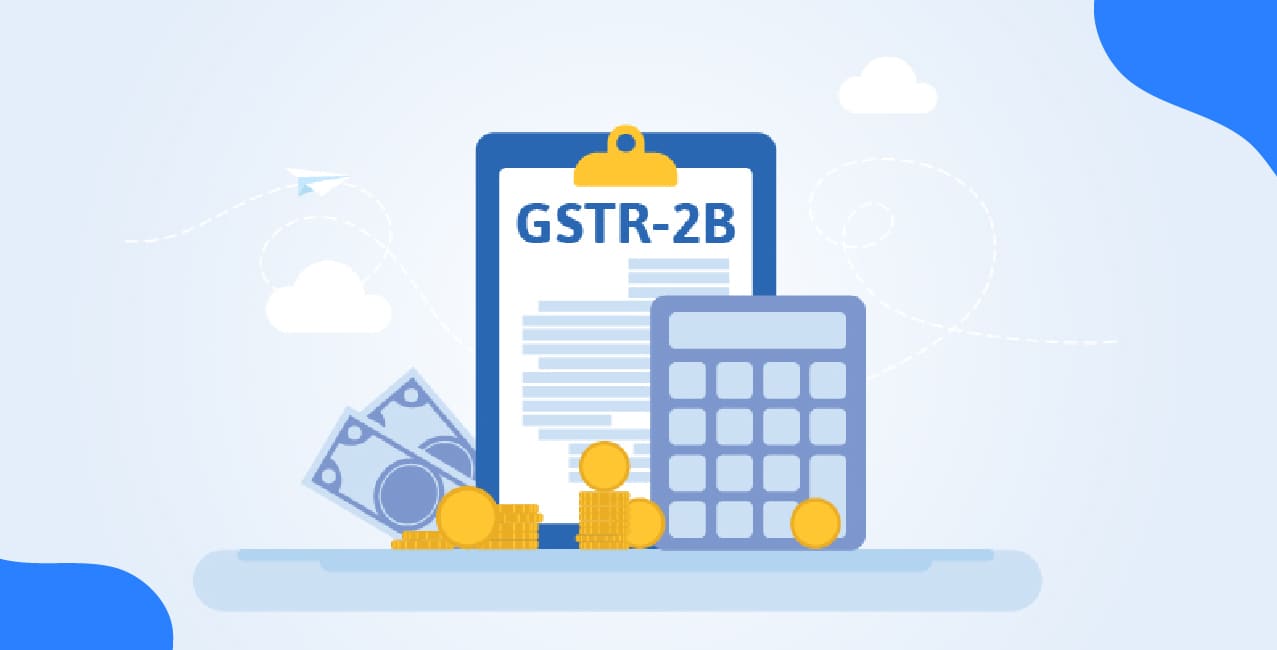GST on Maintenance Charges – Updated Guide for Taxpayers

Check Your Loan Eligibility Now
By continuing, you agree to LoansJagat's Credit Report Terms of Use, Terms and Conditions, Privacy Policy, and authorize contact via Call, SMS, Email, or WhatsApp
Key Highlights
- Under the latest GST amendments, there are no changes in the GST on maintenance charges. It is still charged at 18%.
- If the total maintenance charges are up to ₹7,500/member per month and the total annual turnover is up to ₹20,00,000, then GST is levied.
- Each service has a unique six-digit Sac code. This is important in GST filing and ITC.
Maintenance Charges are paid by residents living in common areas for shared amenities like security, cleaning, landscaping, elevators, repairs, etc. GST on maintenance charges remains at 18% with the same exemption limit (₹7,500/month per member).
For example, Meera pays ₹8,000 monthly maintenance. GST of ₹1,440 (18% of ₹8,000) is added, so she pays ₹9,440 in total.
Calculation:
GST = 18% of ₹8,000
= 1,44,000/100 = ₹1,440
Total Payment = ₹8,000 + ₹1,440
= ₹9,440
Since the total amount is more than ₹7,500, 18% GST is applied. If it were less than the set amount (₹7,500), 0% GST would be applied.
GST on maintenance charges were not changed by the government, but that does not make it a less important topic. So, let’s read about the exemptions, ITC impact and more in this blog.
Exemptions for GST on Maintenance Charges
As stated earlier, if the total maintenance charges are below ₹7,500, you don’t have to pay GST. Similarly, there are other thresholds and exemptions for GST on Maintenance charges. We have listed them in the table given below.
For calculating GST on maintenance charges, you have to remember the ₹7,500 monthly limit and the ₹20,00,000 turnover threshold. If either limit isn’t crossed, residents don’t owe a single rupee in GST.
Read More - GST on Transports: Complete Guide with Rates & Effects
For example, Ramesh lives in a housing society in Pune. His society’s annual turnover is ₹18,00,000. He pays ₹8,000/month in maintenance, including ₹2,000 of this is property tax (a statutory levy).
Let’s see if Ramesh has to pay GST with the help of the table given below:
Ramesh doesn’t pay GST because the taxable amount is under ₹7,500 and his society’s turnover is below ₹20,00,000.
SAC / Service Codes for Maintenance
Have you ever seen your maintenance bill? It has strange numbers like 998525 or 995419; those are SAC (Services Accounting Codes). It is a way of tagging every service so that they can be taxed accordingly.
In the following table, we have given SAC codes for different services, so that you can check your charges this month.
Chapter 99 means that we are stating the SAC codes for services. The next 2 digits show the major category of that service, and the last 2 digits give a more detailed breakdown.
For RWAs, builders, and vendors, using the right SAC codes is really important. They can charge the correct GST percentage, file returns easily, and help residents claim Input Tax Credit (ITC) without headaches.
Also Read - How Would GST Affect India; Examination By The RBI
Types of Maintenance & GST Applicability
Security, cleaning, repairs, and parking are taxable at 18% if both limits (₹7,500 and ₹20,00,000) are crossed. In this table, we have simplified whether a particular service is taxable or not.
Match the correct SAC codes with the services and check if the bill is right or not? ‘Grahak hai aap! Haq hai aapka!’
How does GST Impact Maintenance?
GST on maintenance charges affects everyone involved in the chain, including residents, RWAs, and vendors. Let’s explore this effect on each stakeholder in detail in this section.
GST on maintenance charges increase the overall cost. However, with policies and exemptions, most residents get relief from these costs.
Do you know that over 70,000 cooperative housing societies in Maharashtra exceed ₹20,00,000 turnover and thus fall under GST? This shows that many societies in India fall under the tax slab.
Also, there are approximately 50,000 cooperative housing societies in Karnataka, especially in Bengaluru and Mysuru, that may need GST registration if annual collections exceed ₹20 lakh.
Input Tax Credit (ITC) on Maintenance
Input Tax Credit (ITC) using credits from vendor payments to reduce tax liability for GST payers. When societies pay GST on services like security or cleaning, that amount becomes a claimable credit.
For example, a society collects ₹1,00,000 + ₹18,000 GST from members as maintenance charges. It pays vendors ₹40,000 + ₹7,200 GST for cleaning and security services. The ₹7,200 GST becomes ITC. So, the society pays only ₹10,800 to the government, not the entire ₹18,000.
In the table below, we have shown who can claim ITC and who cannot.
If you are a registered member, you can collect ITC if the total service cost is more than ₹7,500. This is after excluding property taxes and other statutory amounts.
Conclusion
GST on maintenance charges remains at 18%. There were no changes as per the new tax regime introduced on 3rd September, 2025. However, if your monthly service per member is more than ₹7,500 and the society’s annual turnover exceeds ₹20,00,000, statutory levies are excluded and GST is applicable. Societies must register, issue tax invoices, and manage ITC as per the SAC codes to avoid compliance issues and penalties.
Frequently Asked Questions
1. What happens if a society misses GST filing deadlines?
If a society misses GST filing deadlines, it must pay a late fee of ₹50 per day (₹25 CGST plus ₹25 SGST) up to ₹10,000, along with interest at 18% per annum.
2. Is GST payable on advance maintenance or advance collections?
For service advances, GST becomes due when payment is received or service is provided, whichever is earlier.
3. Are capital works (major repairs/renovation) treated differently?
Capital works attract GST separately on both construction goods and service components, depending on their classification.
4. How is GST handled for non-resident or out-of-state members?
The place of supply rule determines tax, and cross-state services may attract IGST based on location.
5. Is interest or late-payment charge included in the ₹7,500/month threshold for GST on society maintenance, or is it outside the limit?
Interest/late-payment charges are taxable under GST, but are not counted in the ₹7,500/month exemption threshold.
6. What about the reverse charge mechanism (RCM) for vendors?
RCM does not usually apply to society vendor services unless specified in government notifications.
7. Do RWAs have an option to use the composition scheme?
RWAs generally cannot use the composition scheme because their services are usually taxable under the regular GST regime.
Other Related Pages | |||
About the author

LoansJagat Team
Contributor‘Simplify Finance for Everyone.’ This is the common goal of our team, as we try to explain any topic with relatable examples. From personal to business finance, managing EMIs to becoming debt-free, we do extensive research on each and every parameter, so you don’t have to. Scroll up and have a look at what 15+ years of experience in the BFSI sector looks like.
Subscribe Now
Related Blog Post
Recent Blogs
All Topics
Contents
Quick Apply Loan
Consolidate your debts into one easy EMI.
Takes less than 2 minutes. No paperwork.
10 Lakhs+
Trusted Customers
2000 Cr+
Loans Disbursed
4.7/5
Google Reviews
20+
Banks & NBFCs Offers
Other services mentioned in this article








